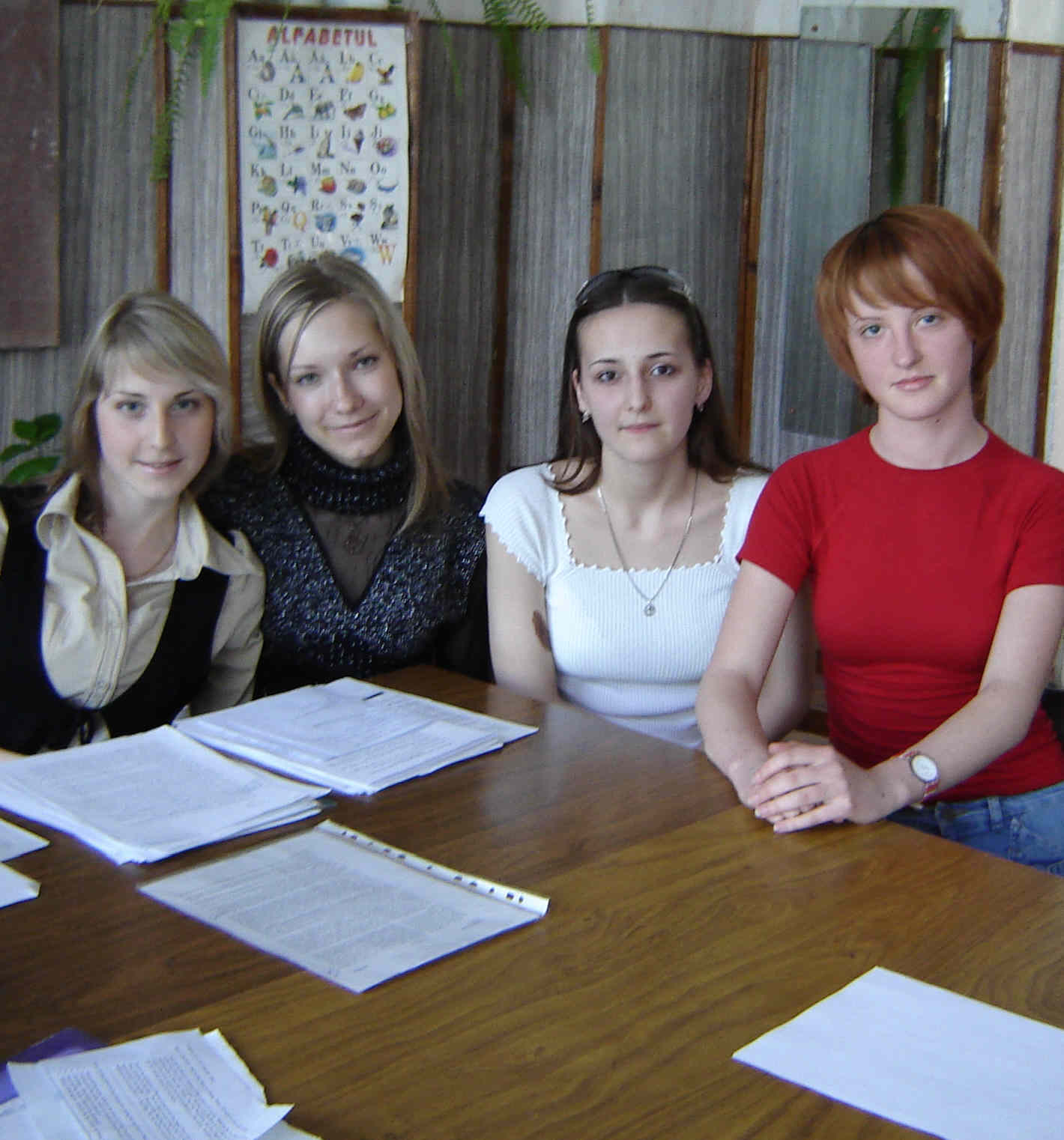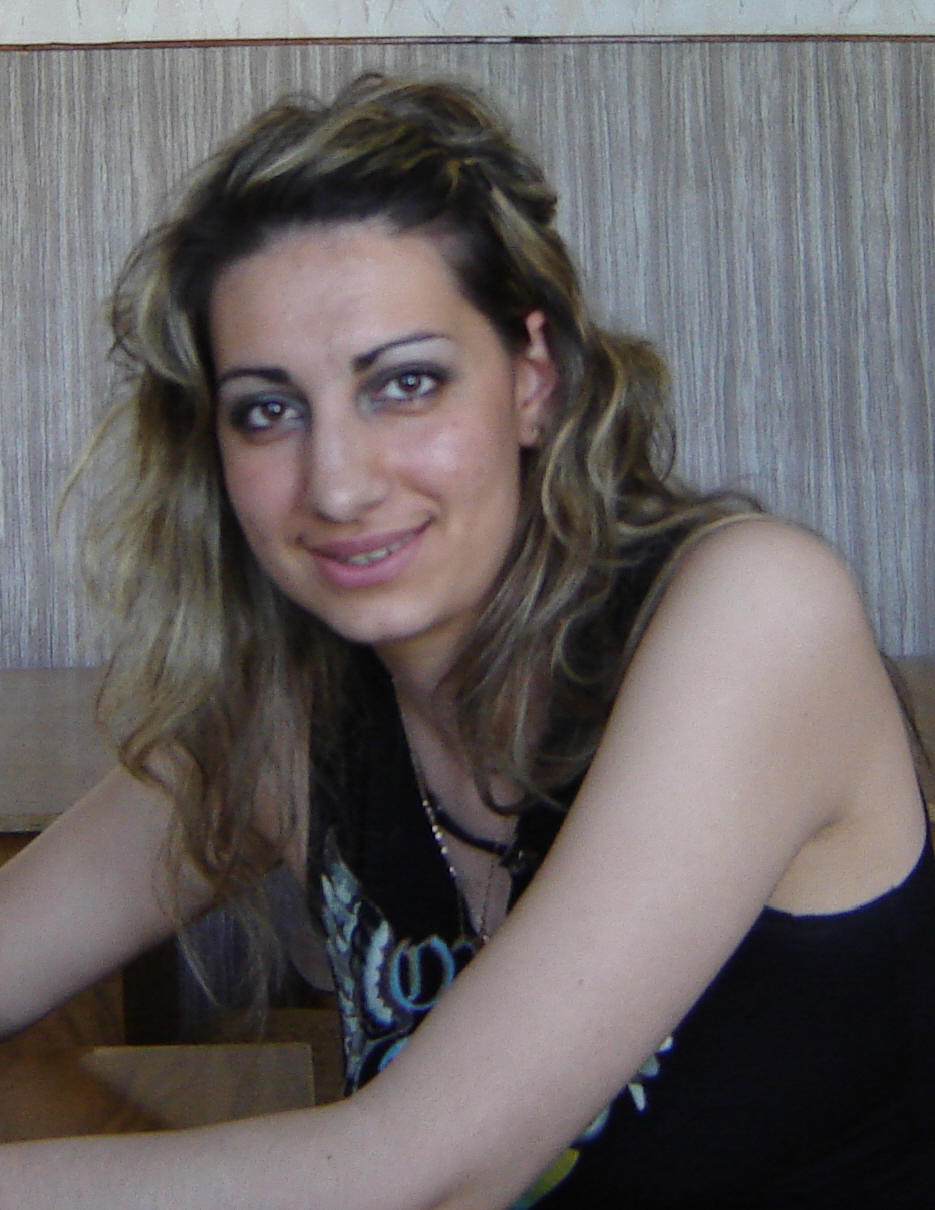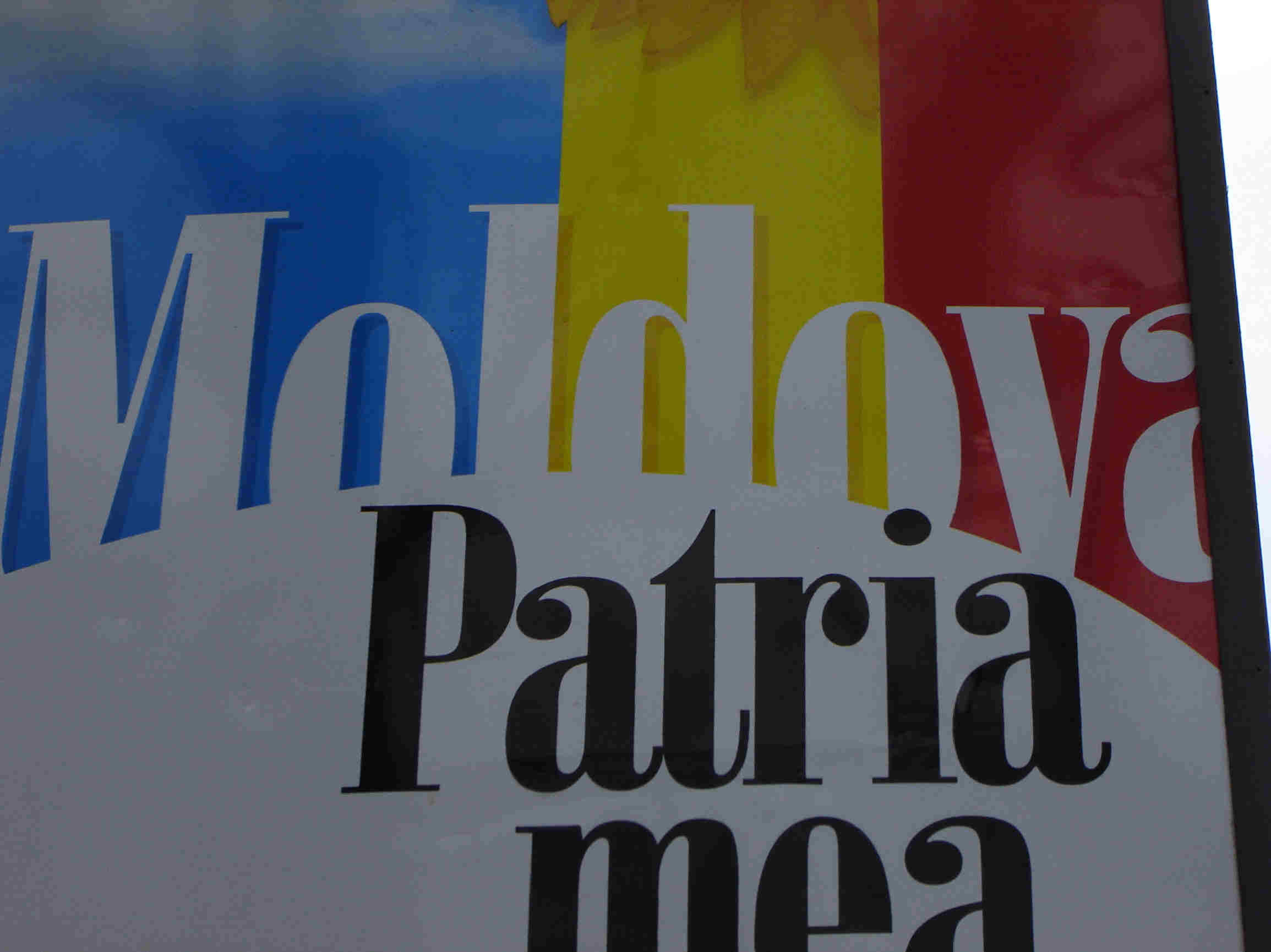| 31 May...Final Exams are
Done...well, almost done as I may have a few stragglers that did not
show up wanting to still take the exam. So many things seem
different after having been here for almost five months (and not just
the weather conditions). You can see on the right, how different
my street looks. It is a good time to reflect a little on my time
in Moldova and higher education here (its joys and frustrations).
I admire good students. I have always admired them in the
United States--you know the kind of person that actually does the
supplemental reading and asks good questions in class and never misses a
class but not because they are a grade-gruber (as I was) but because
they are really intellectually curious. I have so much more
admiration for students that are that way in the Moldovan system.
First, while we sometimes complain about social promotion in the
U.S., in the former Soviet systems just about everyone passes--it is
just expected. If you are in danger of failing, a bribe can
usually solve the problem anywhere in the system (and with many teachers
making less that $100 US per month, you can see why a $3 bribe could go
a long way). This is a feature of the system starting in primary
school and continuing right on through the top levels of the
universities. A failing grade is generally seen as the fault of
the instructor's fault, not the student. Moreover, since teachers
have to tutor a failed student on their own time they are not too keen
to fail them.
By the time a student reaches university, he or she is well
indoctrinated into this sort of culture and when you add in the
financial pressures that lead to students needing jobs and universities
needing students, the likelihood of corruption only increases.
Most classes at the university level are graded on a pass/fail basis and
average professors teach 8-12 classes per term, which makes rigorous
grading less likely. When a class is not pass/fail it is graded on
a 1-10 system with 5 being the minimum passing grade.
Nonetheless, I am amazed at students that work hard--take Allia, she
not only puts in full effort in her classes but she takes on additional
opportunities to learn English (as well as Spanish). Her average
score is 10! I am impressed. Then there is Alexandrina, who
would challenge me in almost every class but write the most fantastic
papers! Other students sought me out for chats and borrowed books
and tried their best to impress me--and I was. Still I had some
weak students that never came to class and at exam time showed up...I
passed them if I could...can't really do much about the ones that never
showed up for the exam.
One item thing I like about the Moldovan university system is that
all seniors must present a comprehensive paper and pass the "state"
exam. The state exam is an arduous process where a student must
prepare and present answers to pertinent questions for a board of
examiners both from the student's university and guests from other
institutions. Students study for this and maybe that is why they
occasionally will come to a class along the way. I was on four
boards for the state exam while I was here and I have to say that most
of my Moldovan colleagues can ask some pretty difficult questions.
Now that exams are over, I am continuing my lectures at the Academy
of Public Administration and preparing for a workshop for English
language teachers. The workshop will combine training in
techniques such as writing, using films, and service-learning while also
emphasizing techniques to improve academic honesty (and given the degree
of plagiarism in the papers I read this term, a good place to start).
In a nation where there is crumbling physical infrastructure, I am
afraid that education gets slighted.
Given my experience teaching here, I wonder when I will start telling
my American students "why can't you be like my good Moldovan students
were?" I tend to forget the bad ones and only remember the good
ones. I have to say that I admire my all students that made an
effort--I hope good things for them all, wherever they are. |
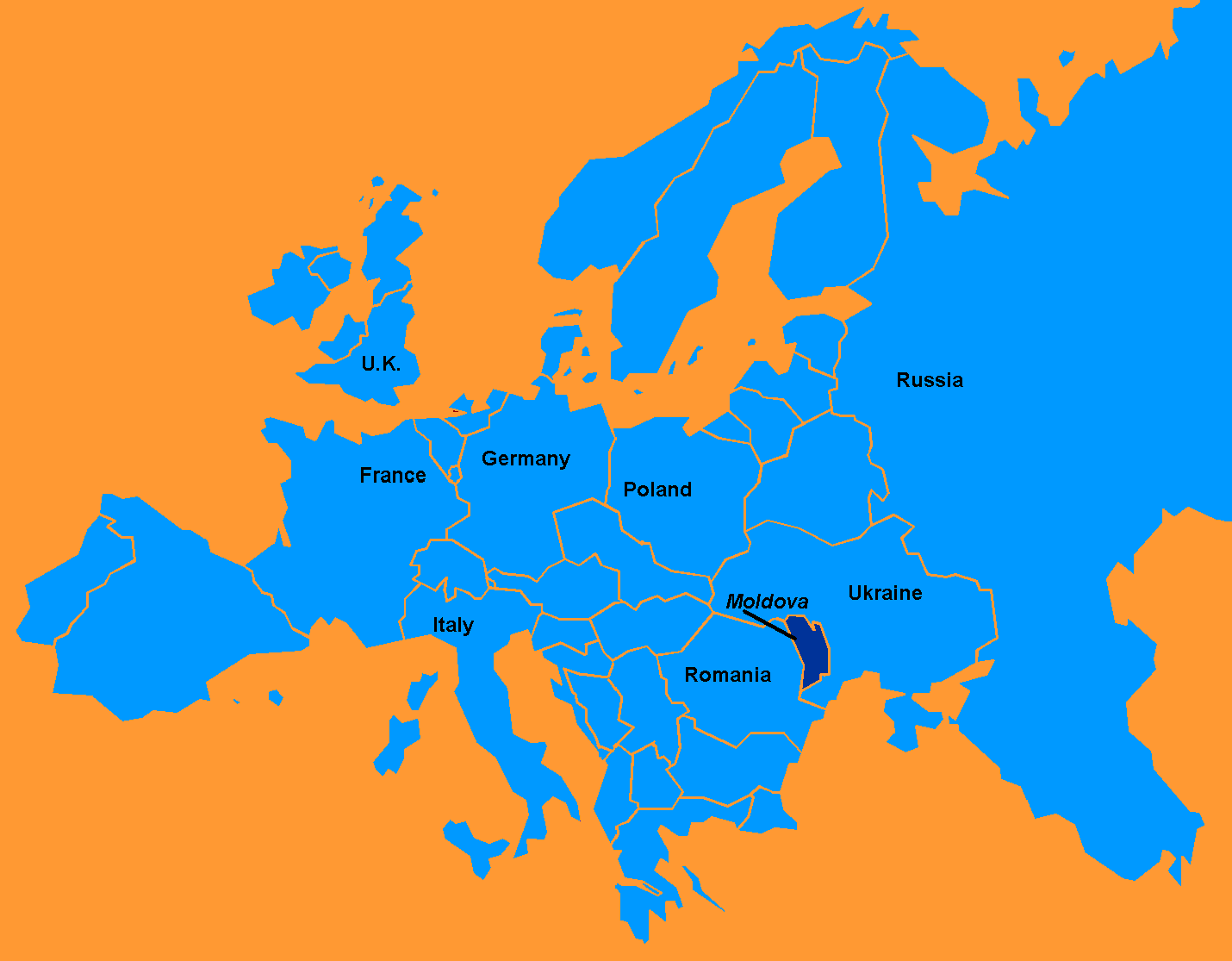
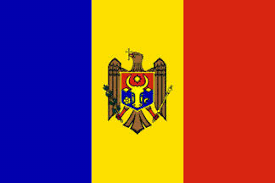
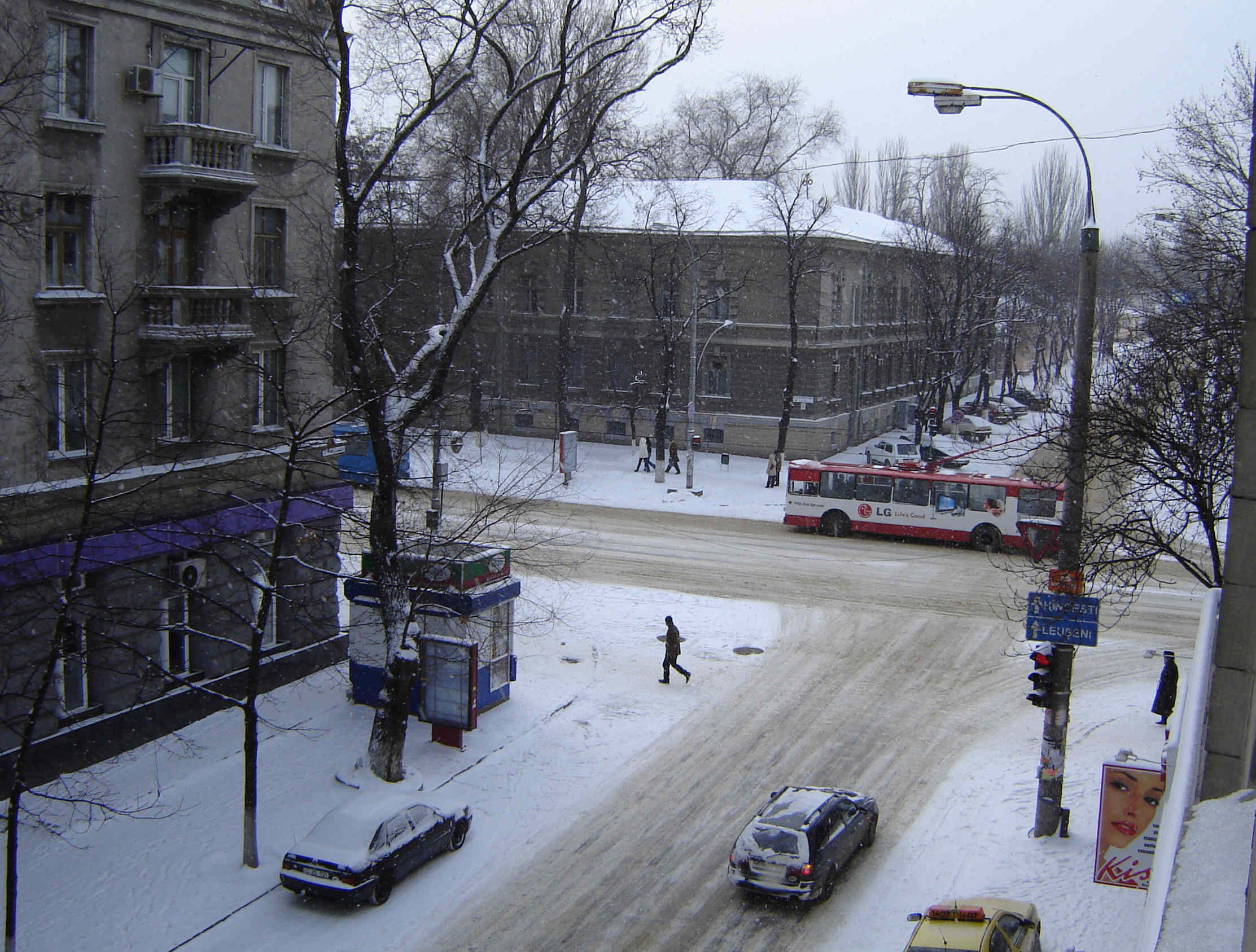
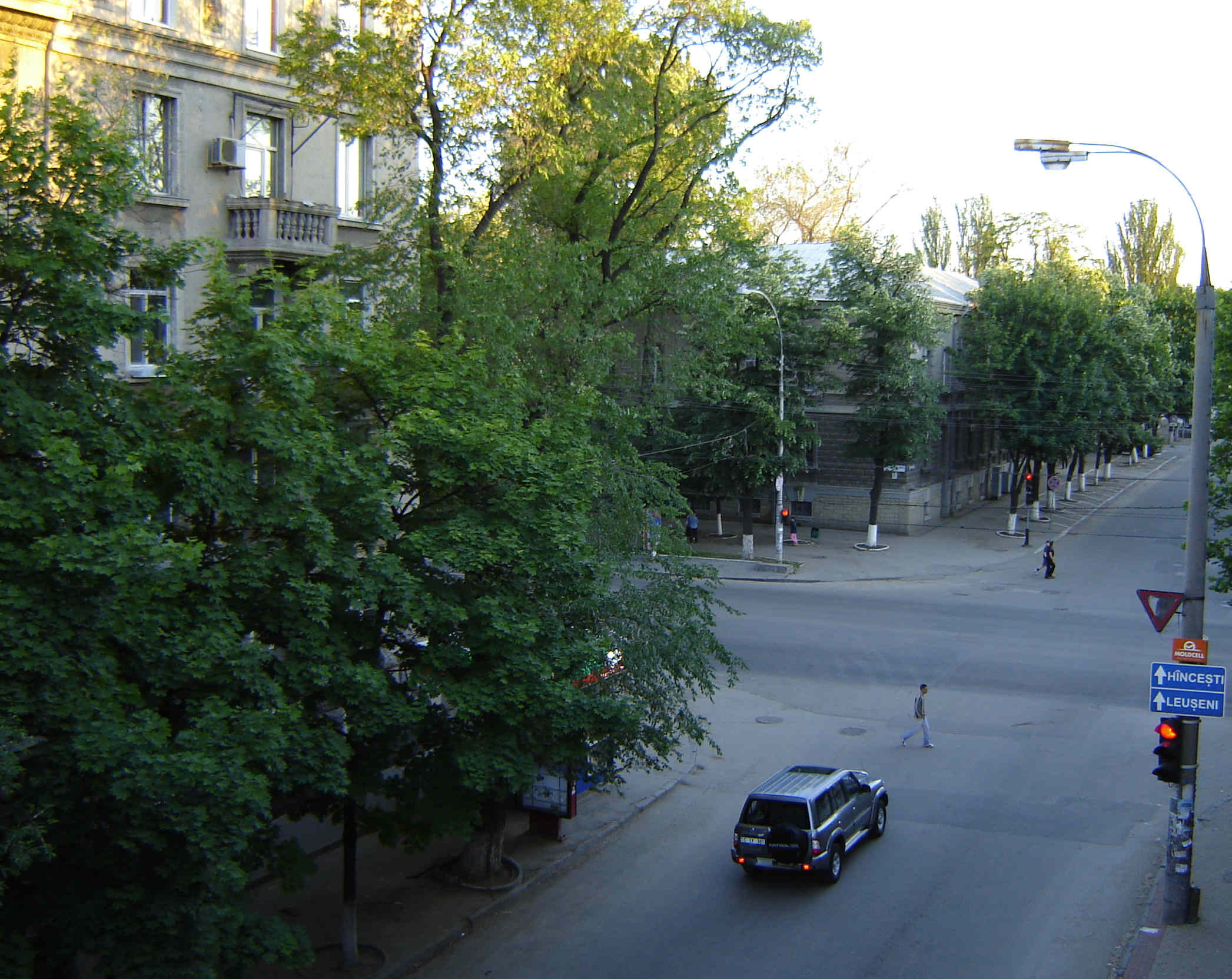
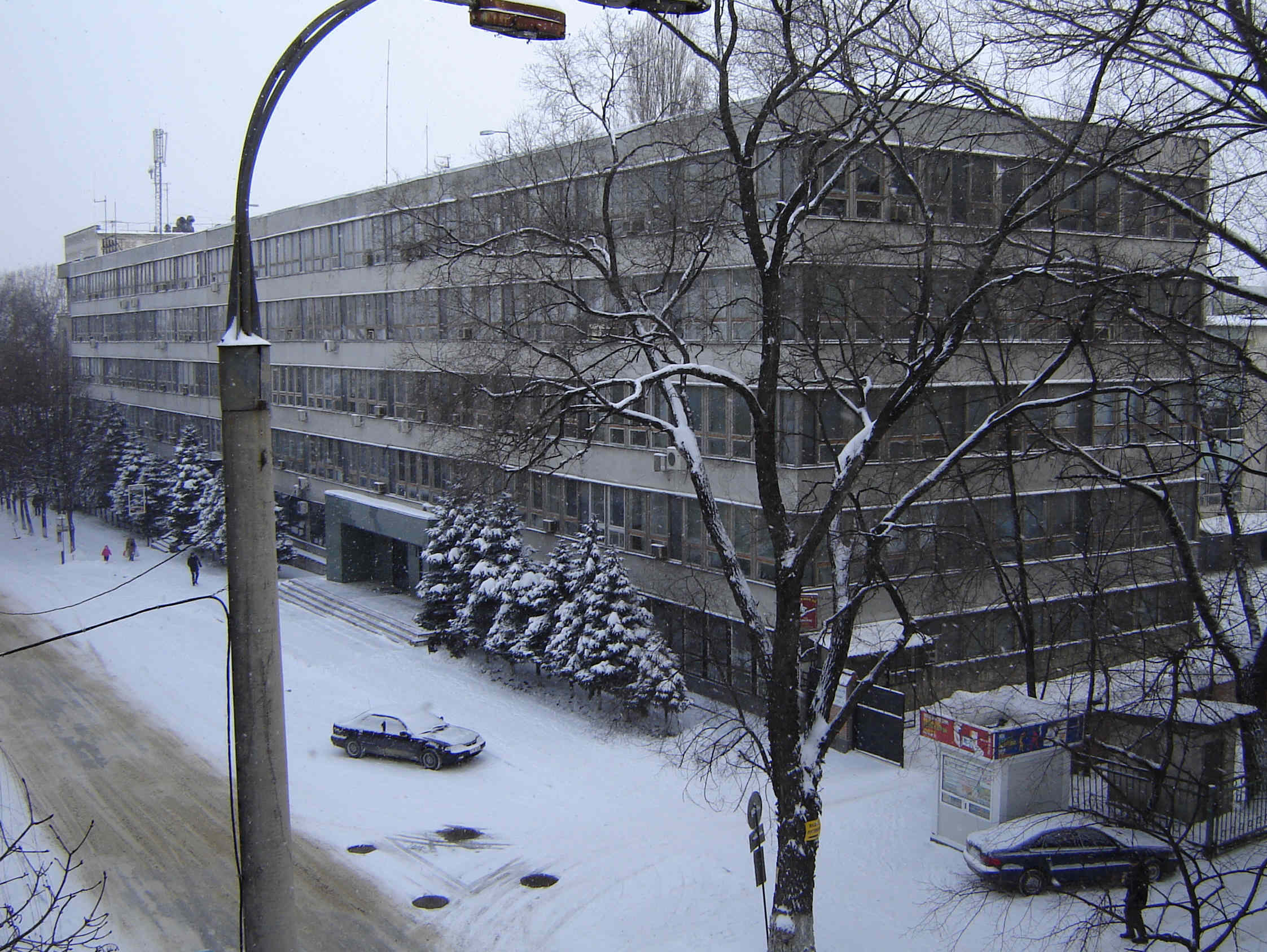
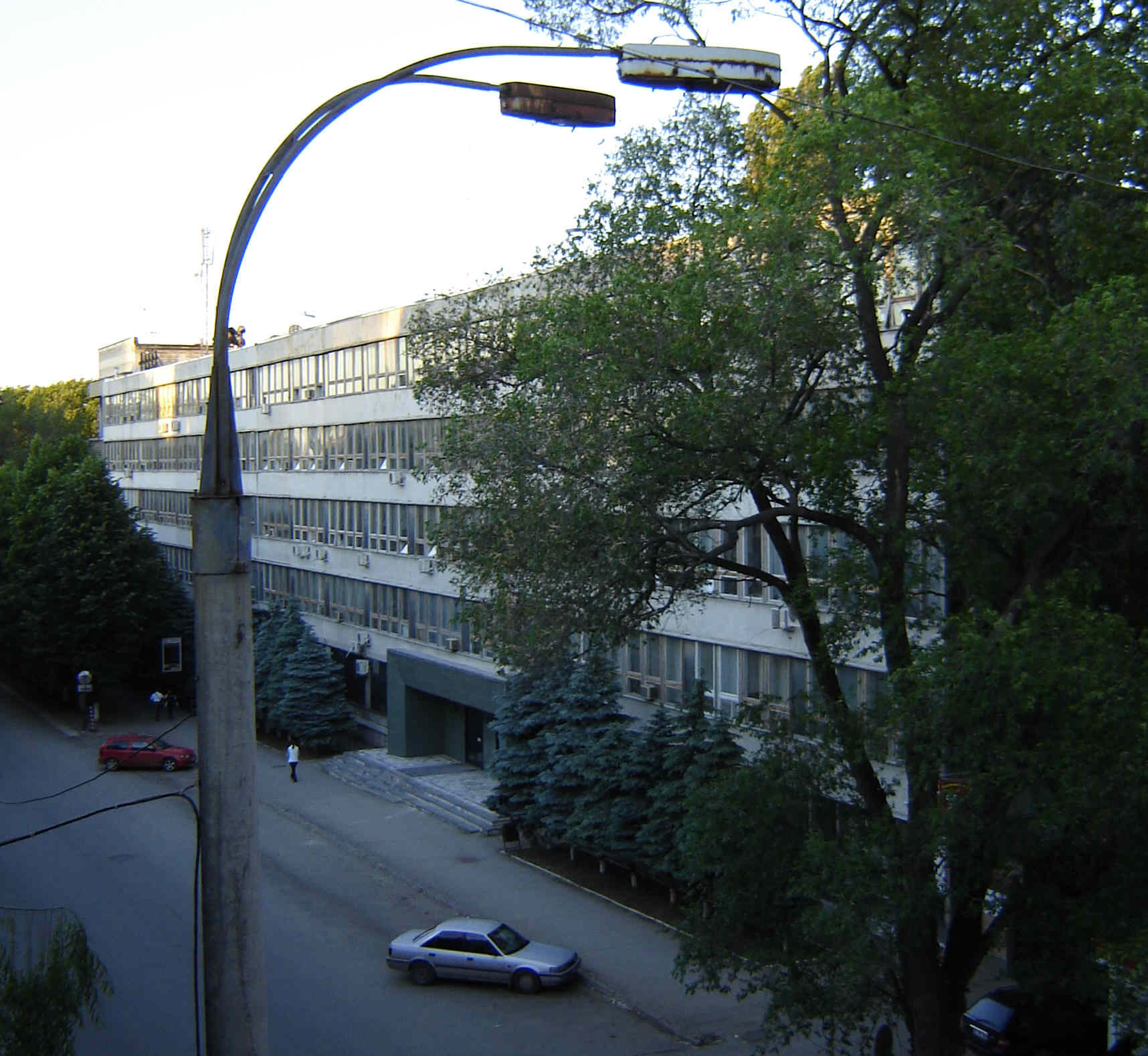
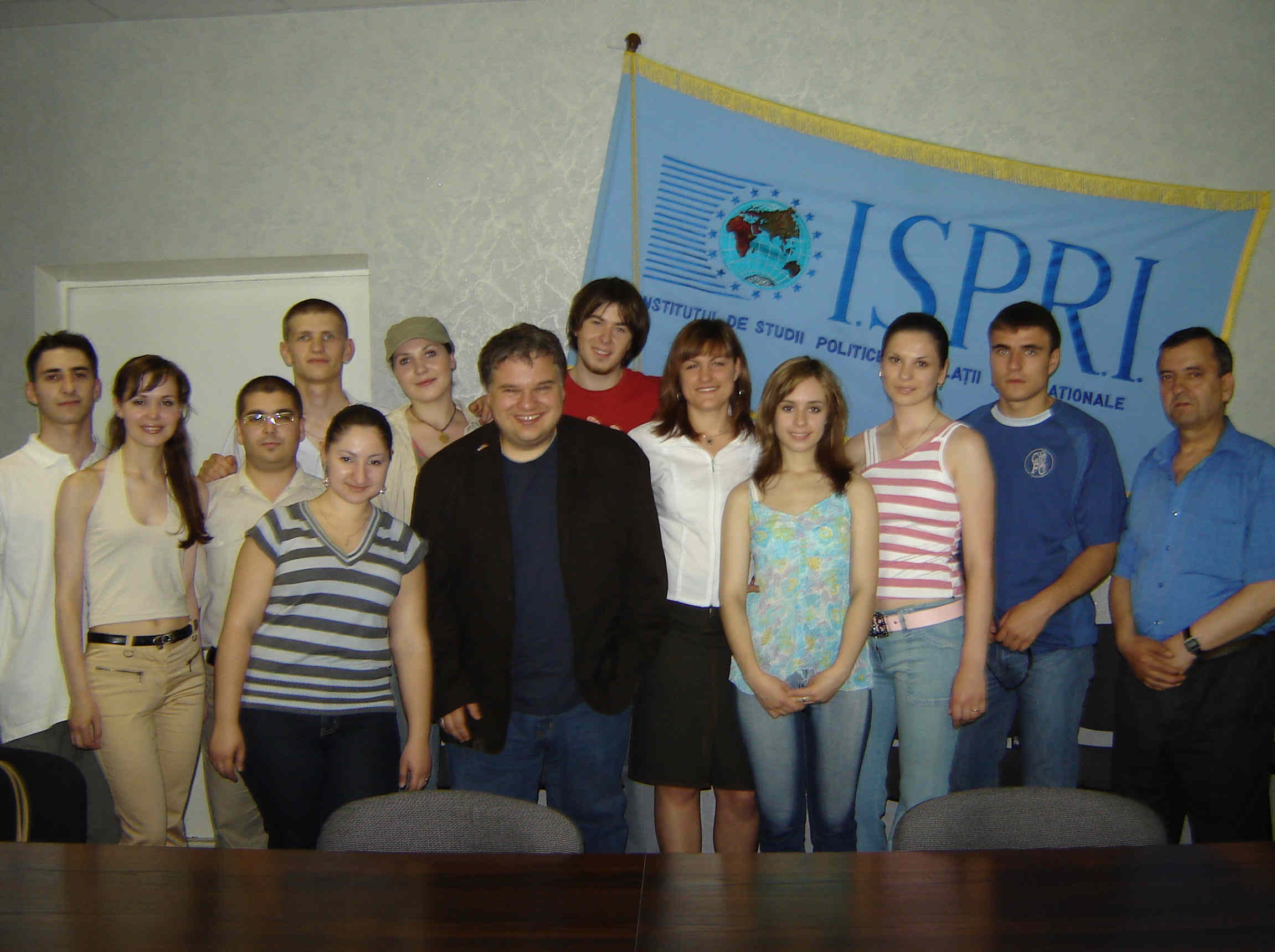 ISPRI Students (l to r: Denis, Alionia, Nicolae, Valeriu, Vlada,
Natalia,me, Artiom, Natasha, Cristina, Doina, Sasha, and my colleague
Dmn. Vazare) just after their exam
ISPRI Students (l to r: Denis, Alionia, Nicolae, Valeriu, Vlada,
Natalia,me, Artiom, Natasha, Cristina, Doina, Sasha, and my colleague
Dmn. Vazare) just after their exam 